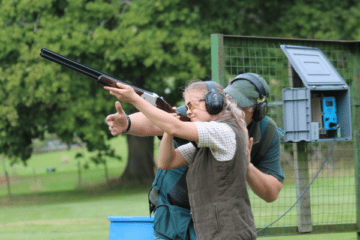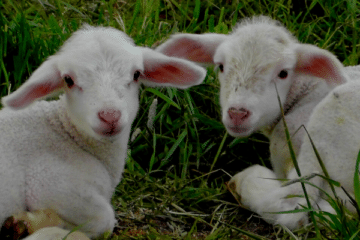Being from an orthodox Jewish community, my life around our 16-acre smallholding is a bit of an enigma, both to my Jewish friends and classmates. Not to mention our farming neighbours. It’s understandable – Jewish traditions are not commonly seen. Modern orthodox Jewish life is not often associated with a rural element. My yarmulke (skullcap) and mezuzah (a sort of amulet of Scriptural verses fixed to the gatepost of the farm) are rare country sights.
Jewish traditions and the land
Growing up in an orthodox family and educated at Jewish schools, I’ve been taught numerous laws which oblige Jews to take care of the environment. The obligation to take care of the land and maintain it is mentioned early on in the book of Genesis, as a requirement given to Adam. This continued throughout our history, as part of our laws and traditions, even until the late 1800s. Most Jews in Europe and the Middle East worked in agriculture at that time. This isn’t the case now, but the laws pertaining to use of the land, care of the environment and consideration for animals – while accepting them as a G-d-given source of food – remain a key part of our heritage. My family and I want to be an example of how that remains a part of our lives.
Jewish way of running a farm
On our land, we have five horses, the occasional goose, and my mum’s flock of a few dozen free range hens. Of our 16 acres ten are rotated between grazing and haymaking. Some of the hay sold off and the rest used as winter fodder for the horses. We also have a plantation of Nordmann firs. We may well be the only Jewish Christmas tree supplier in the country! And we leave wild corners and hedgerows which encourage numerous bird species, and our favourites – the hares. Like any stable yard or smallholding, pest control is a large part of our land management.
We embrace many laws and Jewish traditions on our property that are taught in the Torah (commonly known as the Old Testament). For example, during the time of the holy temple, farmers weren’t allowed to cut the corners of the field. Then, the produce from the corners had to be donated to charity. As we cannot really donate, we give 10 per cent of the money we make from selling hay to charity.
Caring for all animals
Perhaps the most important of our agricultural laws is the prohibition of cruelty to animals. Where there is a necessity to take an animal’s life, whether for food or pest control, we must ensure the least possible pain and distress. As a result, my dad has insisted that my accuracy with a shotgun and air rifle are sufficient to ensure as clean a kill as possible.
Jewish traditions teach us that we are not really owners of the land, but stewards. One thing is certain – G-d is not making any more of it. We need to look after what we’ve got. Our community has been given a unique roadmap for this, and my family do what they can to keep the traditions alive.



